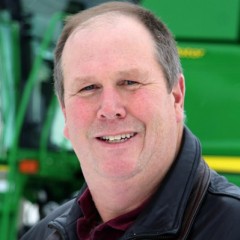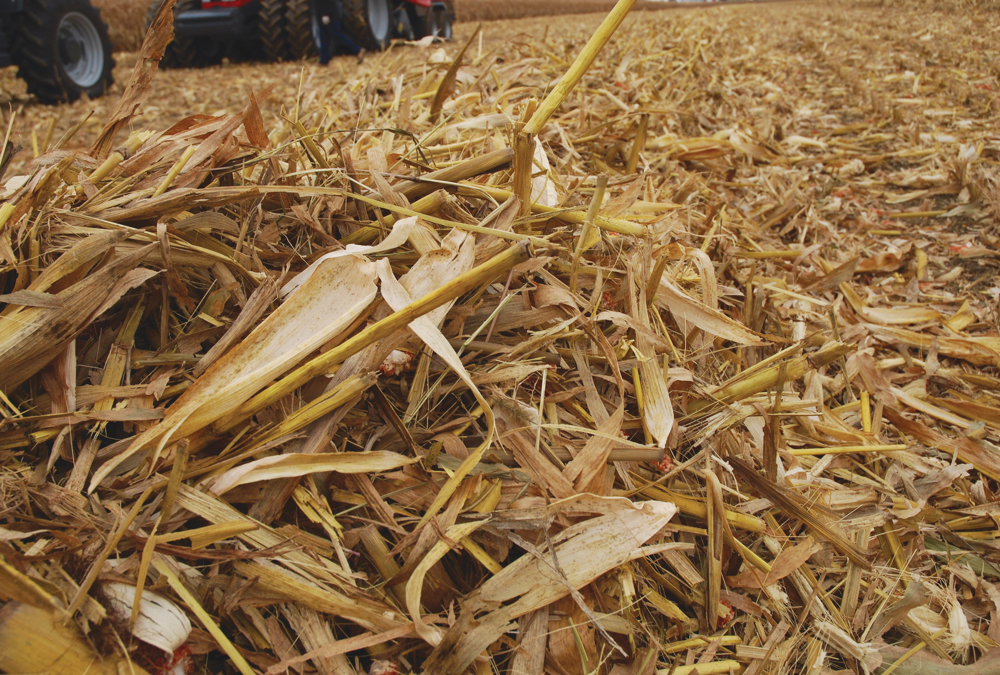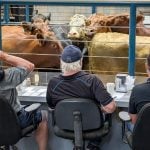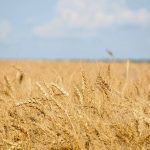It seems I cannot pick up a farm paper, click on an ag website, listen to a newscast about food, or attend a workshop without hearing about the need for farm sustainability.
For 106 years my family has farmed the same land. That’s a lot longer than most of the local businesses that we purchase our inputs from and where we sell the commodities we produce.
While major urban centres have grown outward, paving over some of the best farmland, roughly 10 per cent of our farm remains in native trees and wetlands for environmental and wildlife preservation.
Read Also

Part 4: Financial disagreements between farm siblings
A six-part series that looks at the challenges sibling conflict can have on the farm business and family business relationships.
We minimize the use of tillage to prevent erosion, and we use a single-pass, zero-tillage seeding operation to preserve moisture, reduce fuel usage and minimize the risk of fertilizer losses to the environment. We use new, safer chemistries for weed and disease control and we adopt costly new technologies such as GPS mapping, autosteer and automatic boom control.
Canadian farmers continue to produce more, year over year. And, over time, we sell at prices that don’t keep up to the rate of inflation, so Canadians spend less of their earnings on food than nearly anywhere else in the world.
Yet somehow governments that say they’re worried about the environment still approve urban sprawl. Well-fed urbanites (who often apply much higher rates of fertilizers and pesticides to their yards, parks and golf courses than any farmer uses) fault farmers for use of chemicals. Corporate entities, for a variety of reasons, question the sustainability of agriculture and farming.
I don’t get it!
So, I went looking for answers. If you Google “What is sustainable agriculture” you get 954 million hits. It seems everyone has an opinion on what farmers are doing wrong. They also know why modern farming practices are unsustainable, and what farmers should be doing to grow their food.
On some sites, sustainability means using the latest technology, like planting GMO crops to reduce reliance on pesticides, while the next opinion unequivocally says GMO usage is unsustainable and should be banned. Some want total, chemical-free food production, even if it means tillage for weed control, while the next site concludes soil erosion from tillage is the most unsustainable practice.
Some sites say farms must go back to a regenerative animal-based agriculture while the next say animals should not be raised for food. And on it goes.
I came across a report entitled “Sustainability is the future of farming” by the multinational, professional services and accounting firm KPMG. Surely, they could help me understand how to farm sustainably so I spoke with David Guthrie, partner and national sector leader, agribusiness.
“Sustainability means something different to everyone,” Guthrie told me. He says there are three criteria: environmental stewardship, economic profitability and social responsibility.
Sustainability happens when all three criteria are considered, and best practices are used for maximum benefit of each.
What are we chasing?
“Sustainable farming practices offer opportunities for increased profits and efficiencies to the farm. There can be time savings for farmers, which is a benefit,” Guthrie says.
Guthrie also suggests that a focus on sustainability that leads to significant innovations could be cost-shared between farmers, governments and investors. As examples, he points to development of new trade deals by governments which could increase farm profitability. He pointed to the role investors have played and are playing to bring autonomous equipment and AI to the farm, like robotic milking systems and self-driving equipment. He explained any new technology costs a lot and farmers and investors need each other to develop and bring to market the equipment needed for sustainability.
The Ontario Ministry of Agriculture, Food and Rural Affairs had a somewhat similar definition of sustainability. In the publication Introduction to Sustainable Agriculture it states: “Sustainable agriculture is the efficient production of safe, high-quality agricultural product, in a way that protects and improves the natural environment and the social and economic conditions of the farmers, their employees and local communities, and safeguards the health and welfare of all farmed species.”
Given such definitions, it sounds like sustainability should be the goal of every farm operation. After all, farmers know the importance of profitability. Most already practice environmental stewardship. Farmers realize mining the soil or allowing erosion to go unchecked will eventually reduce profitability.

However, it is the third component, social responsibility, which is questioned by many farmers.
Social responsibility and “social licence” can have different meanings depending on who is presenting the argument. The OMAFRA fact sheet includes indicators such as “support for other local business and families within the community, a stable or increasing rural community population, and a return of post-secondary school graduates to the community after graduation to family farms or associated businesses.”
The conundrum is, while farmers are still the most trusted participants in the food value chain, the push for sustainability is primarily being directed at them. Farmers are being called upon to rebuild the trust in the entire food system. They’re being told they must grow foods in ways that meet consumer demands and they must adopt traceability all the way back to the field.
These are very different definitions of social responsibility but they all reflect society’s changing views of farmers, foods and food production. While it is easy to ignore them, it’s also foolhardy. After all, “Ultimately, consumers will drive the sustainability requirements from farmers,” says Guthrie.
Sustainability needs to be farmer-driven
If sustainability is driven by farmers striving to increase the efficiencies of their farm operation by following good stewardship practices and consumers’ concerns, the goal is great.
Driven by farmers, this kind of sustainability will lead to efficiencies and increased profitability.
However, I question if today’s focus on sustainability is coming from farmers or being forced on farmers. Too often, instead of farmers receiving economic benefits, they bear additional costs. Too often, it is third parties who profit from new farm policies and practices that promise sustainability.
Instead of farmers receiving a premium for their adherence to sustainable practices, they pay a price for providing transparency. There really isn’t a partnership between government, industry, consumers and farmers to create sustainability. Instead, there are three disparate groups all pushing farmers to take action, not for the benefit of farmers but rather for their own benefit.
A major concern of governments today is climate change. Agriculture is seen by many governments as a major contributor to greenhouse gas production as well as a potential mitigator if farming practices are changed. We will see more and more climate change initiatives addressed in terms of farm sustainability.
While governments were once highly involved in working directly with farmers through extension offices which provided valuable information and education that could lead to sustainable practices, today governments have replaced extension work with a carrot and stick approach. Financial incentives or imposition of regulations are the tools that governments rely on. Education and extension directed at farmers has been left to private, for-profit businesses to deliver.
Profitability is the primary driver of most businesses. So, when business and industry push farmers to adopt more sustainable practices, is it really the profitability of farms they are concerned about, or is it their own bottom line?
No question, if farmers do well, the businesses that serve them do better too. However, it is not an equal partnership. Consider the companies now offering data management services to farmers. Or the push by all kinds of companies for traceability. Will consumers pay more to trace the food right back to a specific farm? Or is this a market strategy for the benefit of business all along the value chain?
Society today is demanding many things with respect to foods. Transparency lets consumers know where their food comes from, but is its real value that it lets the food industry differentiate products and seek premiums from the consumer?
Unfortunately, rarely will this premium trickle down to commodity-producing farmers. Even if it does initially, the premium will shrink when more producers adopt the production criteria.
Nor can we forget the wide range of demands society has about the food qualities and farming practices it feels are sustainable. Animal rights, anti-GMO, chemical-free are all examples of trying to change farming practices under the guise of farm sustainability. Is it even possible for a farmer to develop a sustainability plan when the demands are so diverse?
The risks are real
Here is what farmers face. In 2020, the Canadian Centre for Food Integrity did a consumer survey. It found the biggest concern Canadians (57 per cent) have about their food is the cost. Plus 45 per cent were concerned with food safety.
Almost 37 per cent said more farm regulations are needed, with 58 per cent wanting more rules on pesticides and chemicals, 38 per cent on GMOs, and 29 per cent on environmental standards.
We may be following the EU, whose Farm to Fork Strategy is seeking a 50 per cent reduction in the use of pesticides and a reduction of commercial fertilizer use by 30 per cent, with at least 25 per cent of farmland producing organic.
There is no question that good environmental practices are beneficial to everyone including farmers.
In short, farm sustainability must be driven, directed and led by farmers for the benefit of all parties, especially farmers.
Until we get there, every farmer must follow the sustainability discussions that are happening like the Canadian Roundtable for Sustainable Crops (CRSC) and the proposal for the development of codes of practice for responsible grain production. It’s our future.
















